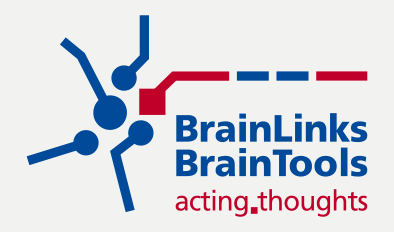
Seventh International Workshop on Guided Self-Organization
The University of Freiburg is pleased to host the 7th International Workshop on Guided Self-Organisation
in collaboration with BrainLinks - BrainTools, December 16-18, 2014.
Home | Call for Abstracts | Committees | Program | Location | Registration | Keynotes | Submissions | Special Issue
News
* 12/15: Added some information on how to get to the venue on the location page page
* 11/18: Added programme schedule and information on hotels close to the workshop venue (at the bottom of the location page)
Research Aims and Topics
The goal of Guided Self-Organization (GSO) is to leverage the strengths of self-organization while still being able to direct the outcome of the self-organizing process. GSO typically has the following features: (i) an increase in organization (structure and/or functionality) over some time; (ii) the local interactions are not explicitly guided by any external agent; (iii) task-independent objectives are combined with task-dependent constraints.
Of particular interest are well-founded, but general methods for characterizing such systems in a principled way with the view of ultimately allowing them to be guided toward pre-specified goals. Information theory, nonlinear dynamics and graph theory are core to many of these methods, and quantifying complexity and its sources is a common theme.
A number of attempts have been made to formalize aspects of GSO within information theory and dynamical systems: empowerment, information-driven evolution, robust overdesign, reinforcement-driven homeokinesis, predictive information-based homeokinesis, interactive learning, etc. What is common to many examples of GSO is the characterization of a system-environment loop in information-theoretic terms. However, the lack of a broadly applicable mathematical framework across multiple scales and contexts leaves GSO methodology incomplete. Devising such a framework and identifying common principles of guidance are among the main themes of the GSO-2014 workshop, continuing the tradition established at previous GSO Workshops (see guided-self.org).
The efficient guidance of self-organisation in complex systems towards desired states is a also a shared goal in multiple projects in the BrainLinks-BrainTools cluster of excellence at University of Freiburg. Of particular interest in that context is GSO in neuronal systems. This will be another focus theme at the meeting this year.
The GSO-2014 workshop will bring together invited experts and researchers in self-organising systems, nonlinear dynamical systems, distributed computationcomputational neuroscience, systems biology, developmental robotics, and adaptive autonomous systems, as well as researchers and PIs of projects from the BrainLinks-BrainTools cluster.
Topics of interest for the workshop will include, but are not limited to:
- Information-theoretic measures for the quantification of complexity, self-organisation, and distributed information processing in dynamical systems
- Structure, dynamics, and function relationship in real and artificial dynamical systems, such as neural systems and models thereof
- Modulation of dynamics in neural systems through active stimulation (electric/optical) or pharmacological agents
- Information flows in the perception-action loop of embodied systems
- Task-independent guidance mechanisms for autonomous exploration and learning of embodied agents
- Self-Organisation and dynamics shaping for recurrent neural networks
- Information-theoretic measures in learning and evolution
- Analysis of pattern formation in nonlinear dynamical systems
- Motif analysis in neural systems
- Guided self-organization through morphological constraints
- Bio-inspired systems and swarm intelligence
Program
The workshop program will include 2.5 days of presentations, with five keynote talks (1 hour each), and regular presentations (30 minutes or more, depending upon the number of accepted talks).
Submissions to the workshop are extended abstracts (one-two pages). Authors of accepted submissions will present the content to the workshop. It is expected that post-workshop publication of selected papers will follow in a special journal issue (as has been the case for previous GSO workshops). Selected papers of GSO-2008 were published by the Human Frontier Science Program (HFSP) Journal, in the Special Issue on Guided Self-Organization (full text papers online here). A special issue of Theory in Biosciences followed with selected papers from GSO-2009 online. Selected papers from GSO-2010 and GSO-2011 were published in a topical issue of Advances in Complex Systems, and a special issue in the Entropy journal is publishing selected papers from GSO-2013 here. In addition, the Springer book "Guided Self-Organisation: Inception" was published recently.
Important Dates
- Abstract submission: September 7, 2014
- Abstract notification: September 21, 2014
- Conference: December 16-18, 2014

